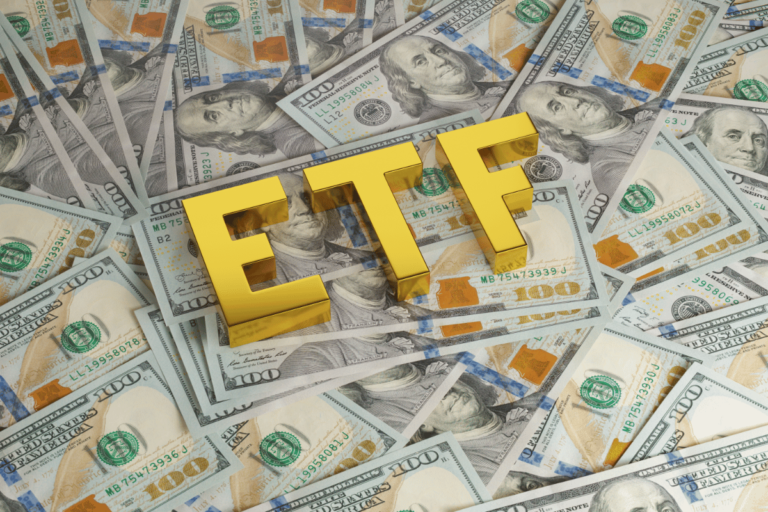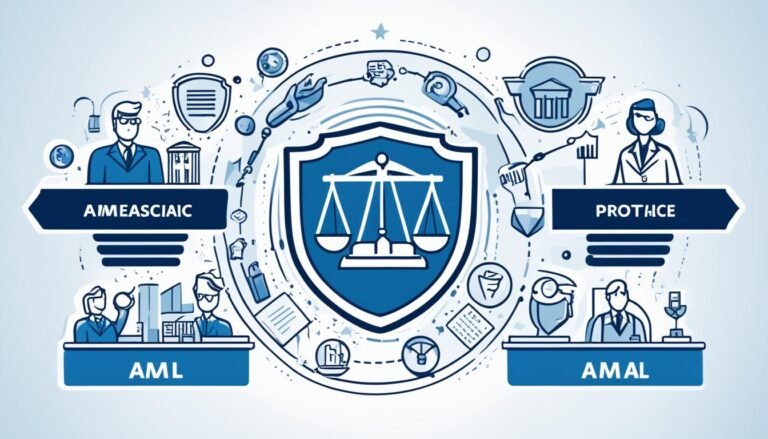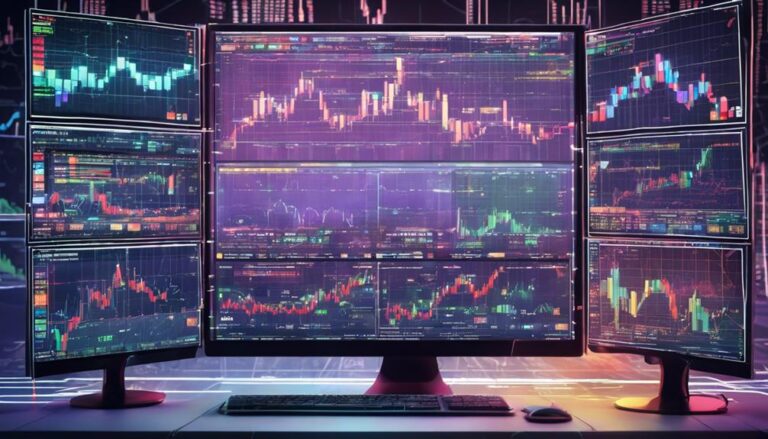Insider Trading Case Studies Overview
Did you know that insider trading costs the U.S. stock market an estimated $40 billion annually? This illegal practice, involving the buying or selling of a company’s stock based on non-public material information, has far-reaching consequences for investors, companies, and financial markets as a whole. In this article, we delve into high-profile insider trading case studies, examine key SEC investigations, discuss legal outcomes and penalties, and analyze the impact of insider trading on the financial industry.
- Insider trading involves the use of non-public material information to execute trades, giving insiders an unfair advantage.
- High-profile cases include Albert H. Wiggin, Ivan Boesky, R. Foster Winans, and Martha Stewart, which have shed light on the consequences of insider trading.
- The SEC plays a crucial role in investigating and prosecuting insider trading cases, using advanced tools and techniques to detect market manipulation.
- Legal outcomes can include prison sentences, fines, and SEC bans, reflecting the seriousness of insider trading as a violation of fiduciary duty.
- Insider trading undermines investor confidence, distorts market fairness, and can impact mergers and acquisitions.
Understanding Insider Trading
Insider trading is broadly defined as the use of non-public information to execute trades of stocks and securities. It typically involves corporate executives or individuals who have access to confidential information about a company.
Non-public information refers to knowledge that is not available to the general public, giving insiders an unfair advantage in the market. Trades made based on this privileged information can result in significant gains or avoid losses.
Corporate executives play a key role in insider trading cases as they have access to critical information about their own companies’ financial performance, future plans, and potential setbacks. This information can significantly impact the value of stocks and securities.
The concept of misappropriation is central to insider trading. It involves the unauthorized use of information obtained through one’s position or role within a company. Misappropriation expands the definition of insider trading beyond corporate insiders, making it illegal to use any confidential information for personal gain.
“Insider trading is the most widespread form of white-collar crime in American business today. It destroys faith in the integrity of capital markets and victimizes the stockholders and investors who are playing by the rules.” – Michael G. Oxley
Types of Insider Trading Cases
Insider trading cases can vary in nature and complexity. Some involve trading stocks or securities based on confidential information about mergers, acquisitions, or other material events. Others may revolve around insider trading within a specific industry or sector, targeting companies with potential market-moving news.
The enforcement of insider trading laws has evolved over time to address different types of cases and ensure market fairness and transparency.
The Impact on Financial Markets
Insider trading has far-reaching consequences for financial markets. It undermines the level playing field and erodes investor confidence. When insiders use non-public information to trade securities, they gain an unfair advantage and potentially manipulate stock prices for personal gain.
Market manipulation resulting from insider trading can distort stock prices, affecting the decisions of other investors. This can create market volatility and impact the broader economy. Additionally, it can create an imbalance of power between insiders who profit from their privileged information and average investors who lack the same access.
The detection and prevention of insider trading are crucial for maintaining market integrity and protecting investors’ interests.
| Key Concepts | Explanation |
|---|---|
| Insider Trading | Use of non-public information to trade stocks and securities. |
| Non-public information | Confidential knowledge not available to the general public. |
| Misappropriation | Unauthorized use of information obtained through a position or role. |
| Market Impact | Distorts fairness, erodes investor confidence, and creates market volatility. |
High-Profile Insider Trading Cases
Throughout history, there have been several high-profile insider trading cases that have captured public attention. These cases involve individuals who used non-public information to gain unfair advantages in the financial markets. Some of the most notable cases include:
Albert H. Wiggin
Albert H. Wiggin, the head of Chase National Bank, made headlines when he shorted his own company’s stock after the Wall Street Crash of 1929. This case highlighted the unethical practice of insiders taking advantage of their knowledge and positions for personal gain.
Ivan Boesky
Ivan Boesky, an American stock trader, was involved in insider trading during the 1980s. His case brought widespread attention to the issue of insider trading and resulted in significant fines and penalties.
R. Foster Winans
R. Foster Winans, a columnist at the Wall Street Journal, was convicted of insider trading for leaking information about stocks featured in his column. This case emphasized the importance of trustworthiness and integrity in financial journalism.
Martha Stewart
Martha Stewart, a well-known businesswoman and television personality, became embroiled in an insider trading scandal related to the pharmaceutical company ImClone. Her case received widespread media attention and shed light on the consequences of illegal activities in the financial markets.
These high-profile insider trading cases serve as reminders of the unethical and illegal nature of insider trading. They highlight the need for strict enforcement and regulation to ensure fairness and integrity in the financial markets.
| Insider Trading Cases | Year |
|---|---|
| Albert H. Wiggin | 1929 |
| Ivan Boesky | 1980s |
| R. Foster Winans | 1980s |
| Martha Stewart | 2001 |
Key SEC Investigations
The Securities and Exchange Commission (SEC) plays a vital role in uncovering and prosecuting cases of insider trading. One noteworthy investigation involves Raj Rajaratnam and the Galleon Group. Rajaratnam leveraged insider information obtained from corporate executives to generate substantial profits through stock trades. To shed light on these illegal activities, the investigation employed wiretaps and surveillance methods, showcasing the extensive measures taken by authorities to expose insider trading.
Advanced algorithms and AI are now employed to identify red flags and suspicious trading patterns, aiding in the detection of potential market manipulation. However, human interpretation remains essential to decipher the nuances surrounding these activities and validate their illegality. SEC investigations are central to preserving the integrity of financial markets and safeguarding against unfair practices.
To illustrate the significance of SEC investigations in combating insider trading and maintaining market fairness, here is an example of a notable case:
Raj Rajaratnam and the Galleon Group: Raj Rajaratnam, the founder of the Galleon Group, was involved in a major insider trading scandal. He utilized insider information to make profitable trades on various stocks. The SEC investigation into Rajaratnam’s activities involved wiretapping conversations and surveillance, eventually leading to his conviction and a record-breaking $92.8 million penalty. This case serves as a stark reminder of the SEC’s commitment to pursuing justice and protecting the integrity of financial markets.
Legal Outcomes and Penalties
Insider trading convictions can have significant legal consequences. Violators may face prison sentences, substantial fines, and bans imposed by the Securities and Exchange Commission (SEC). These penalties reflect the gravity of securities fraud and the breach of fiduciary duty.
For example, Ivan Boesky, a prominent stock trader, was sentenced to 3.5 years in prison and ordered to pay a staggering $100 million fine for his involvement in insider trading. Similarly, Martha Stewart, a well-known businesswoman, received a minimum prison sentence of five months and was fined $30,000 for her connection to an insider trading scandal.
In some cases, offenders are permanently banned from working in the securities industry. These permanent bans may extend to holding executive positions or serving on corporate boards. Such measures aim to deter future misconduct and protect the integrity of financial markets.
Penalties for Insider Trading Convictions
| Individual | Prison Sentence | Fine | SEC Ban |
|---|---|---|---|
| Ivan Boesky | 3.5 years | $100 million | Yes |
| Martha Stewart | Minimum 5 months | $30,000 | Yes |
| Other Offenders | Varies | Varies | Yes/No |
These legal outcomes and penalties are essential in deterring individuals from engaging in insider trading. They serve as a reminder of the seriousness of securities fraud and the responsibility of individuals to maintain fiduciary duty.
Next, we will explore the broader impact of insider trading on financial markets.
Impact on Financial Markets
Insider trading has a significant impact on financial markets. This illegal practice undermines investor confidence, distorts market fairness, and can manipulate stock prices for personal gain. Insider traders exploit non-public information, gaining an unfair advantage at the expense of other investors. The consequences of insider trading cases are far-reaching, affecting market stability and public perception of the companies involved.
The revelation of insider trading cases often leads to market volatility, as investors react to the unethical behavior and its implications. The sudden fluctuations in stock prices can erode investor confidence, raising concerns about the integrity and transparency of the financial markets. The disclosure of insider trading not only damages the reputation of specific companies but also impacts broader market sentiment.
Furthermore, insider trading can have a direct influence on mergers and acquisitions. Since insiders have access to confidential information, they may gain early knowledge of impending corporate deals. This allows them to make substantial profits or avoid substantial losses by trading on this information before the public announcement. In such cases, other investors are put at a significant disadvantage, resulting in potential imbalances and unfair market conditions.
| Impact of Insider Trading on Financial Markets |
|---|
| Undermines investor confidence |
| Distorts market fairness |
| Manipulates stock prices |
| Affects mergers and acquisitions |
Insider trading poses a significant threat to the overall transparency and fairness of financial markets. To maintain an equitable and level playing field, regulatory bodies, market surveillance, and stricter legal scrutiny are essential. These measures help ensure investor confidence and promote integrity within the financial system.
Insider Trading Detection and Prevention
Detecting and preventing insider trading is a complex and ongoing endeavor. To uncover suspicious activities, market surveillance and reports from self-regulatory bodies play a vital role. These mechanisms help identify abnormal trading patterns and relationships that may indicate potential insider trading violations. Additionally, whistleblowers play a crucial role in providing valuable information that can initiate investigations into insider trading cases.
The U.S. Securities and Exchange Commission (SEC) employs various detection methods, including advanced algorithms and artificial intelligence (AI), to analyze vast amounts of trading data. These technologies help identify unusual market behaviors and potential insider trading activities. By leveraging innovative detection methods, the SEC aims to stay ahead of fraudulent activities and protect market integrity.
Transparency is a key element in preventing insider trading. Market participants and regulatory bodies must prioritize transparency to ensure fairness and equal opportunities for all investors. Strict enforcement of regulations and the consistent and thorough investigation of potential violations serve as vital deterrents against insider trading.
The image above visually represents the concept of market surveillance, a proactive approach used to identify and prevent insider trading. Through effective market surveillance measures, regulators can closely monitor trading activities, detect suspicious patterns, and intervene when necessary to maintain market integrity.
“Transparency is the foundation of a fair and efficient marketplace. By diligently employing market surveillance techniques, regulators safeguard the interests of all investors and ensure that financial markets operate with integrity.”
Whistleblower Protection and Reporting Mechanisms
Whistleblowers play a crucial role in exposing insider trading cases. To encourage the reporting of potential violations, regulatory bodies have implemented whistleblower protection programs. These initiatives provide legal safeguards and incentives to individuals who come forward with credible information on insider trading activities. Protecting the anonymity and confidentiality of whistleblowers is essential to ensure their safety and prevent any potential retaliation.
Effective Enforcement and Collaboration
Effective enforcement of insider trading regulations requires collaboration among regulatory bodies, self-regulatory organizations (SROs), and law enforcement agencies. The SEC collaborates closely with SROs, such as stock exchanges, to share information and coordinate efforts in detecting and preventing fraudulent activities. This collaborative approach enhances the ability to identify and respond swiftly to potential insider trading cases.
The Role of Technology
Technological advancements have significantly enhanced the detection and prevention of insider trading. Advanced algorithms and AI systems allow for the analysis of vast amounts of trading data in real-time. These technologies can identify unusual trading patterns, relationships, and other red flags that may indicate potential insider trading activities. However, human intervention and expertise are still essential in the interpretation and verification of suspicious activities before initiating investigations.
| Insider Trading Detection Methods | Description |
|---|---|
| Algorithmic Monitoring | Utilizes complex algorithms to analyze trading data and identify potential patterns or anomalies associated with insider trading. |
| Network Analysis | Examines the relationships and connections between traders and companies to identify potential instances of insider trading. |
| Surveillance of Electronic Communications | Monitors emails, instant messages, and other electronic communications for indications of insider trading activities. |
| Data Analytics | Applies statistical models and data mining techniques to detect patterns or correlations in trading data that may suggest insider trading. |
> “Market surveillance and the integration of advanced detection methods are essential in detecting insider trading activities. By leveraging technology and promoting transparency, regulators can maintain fair and efficient financial markets.” – Sarah Johnson, Compliance Officer
In conclusion, the detection and prevention of insider trading involve a multi-faceted approach that combines market surveillance, the collaboration of regulatory bodies, and the use of advanced technology. Whistleblowers play a crucial role in providing valuable information, and the enforcement of regulations ensures fair and transparent financial markets. By consistently implementing these measures, regulators strive to maintain market integrity and protect the interests of investors.
Academic Programs in Fraud and Financial Crime
Several universities offer academic programs focused on fraud and financial crime. These programs provide students with the knowledge and skills necessary to detect, prevent, analyze, and investigate economic crimes. Online programs offered by institutions such as Utica College, University of New Haven, and LaSalle University cater to individuals seeking flexibility and convenience in their studies.
The coursework in these programs covers a wide range of topics relevant to fraud and financial crime education. Students learn about accounting procedures, fraud detection techniques, damage assessment, and forensic accounting skills. They gain a multidisciplinary understanding of the various complexities involved in identifying and combating fraud.
| University | Program | Format |
|---|---|---|
| Utica College | MS in Financial Crime and Compliance Management | Online |
| University of New Haven | MS in Investigations | Online |
| LaSalle University | MS in Economic Crime Forensics | Online |
These online programs allow students to balance their educational pursuits with their personal and professional commitments. Through interactive coursework, case studies, and collaborative projects, students develop the necessary skills and knowledge to understand the intricacies of fraud and financial crime. They learn to assess risks, apply ethical principles, and implement best practices in the prevention and detection of economic crimes.
Graduates of these programs are well-equipped to pursue careers in various sectors, including law enforcement agencies, financial institutions, regulatory bodies, and corporate compliance departments. They possess the expertise required to contribute effectively to the investigation, detection, and prevention of fraud and financial crime.
Insider Trading Experts
When it comes to combating insider trading and economic crimes, it’s crucial to rely on the expertise of professionals who specialize in investigations, fraud detection, and financial crime prevention. Suzanne Lynch, Patrick Malloy, and Michael Redmond are renowned experts in their respective fields, contributing significantly to the detection and prevention of insider trading. Let’s take a closer look at their backgrounds and areas of expertise.
Suzanne Lynch
Suzanne Lynch is a seasoned professional in economic crime prevention, with extensive experience in both the private and public sectors. As a professor at Utica College, she imparts invaluable knowledge to students pursuing careers in fraud detection and prevention. Through her expertise, Suzanne has made substantial contributions to furthering the understanding of economic crimes and developing effective strategies to combat insider trading.
Patrick Malloy
Patrick Malloy is the director of the MS in investigations program at the University of New Haven, focusing on fraud investigations and cyber-enabled financial investigations. With his vast knowledge in these areas, Patrick equips aspiring investigators with the necessary skills to uncover and combat insider trading. His dedication to training future professionals plays a crucial role in preventing financial crimes and promoting integrity within the industry.
Michael Redmond
As an associate professor at LaSalle University, Michael Redmond brings a wealth of expertise in economic crime prevention and digital forensics to the table. Through his courses, students gain valuable insights into the intricacies of financial crime and the techniques used to detect and prevent illegal activities such as insider trading. Michael’s dedication to educating the next generation of professionals strengthens efforts to maintain transparency and fairness in financial markets.
By leveraging the knowledge and experience of experts like Suzanne Lynch, Patrick Malloy, and Michael Redmond, the fight against insider trading and economic crimes gains momentum. These professionals are instrumental in developing innovative strategies, raising awareness, and fostering a culture of ethical practices within the financial industry.
The Legality and Controversy of Insider Trading
The legality of insider trading has long been a topic of debate and controversy within financial markets. This practice involves the use of non-public information to gain an unfair advantage in trading securities. It is widely regarded as a breach of fiduciary duty, as it undermines the integrity and fairness of the market.
Detecting and prosecuting instances of insider trading can be challenging due to the complex nature of investigations and the involvement of legal disputes. The process often requires extensive efforts and resources to gather evidence and prove the misuse of confidential information. As a result, achieving successful convictions in insider trading cases can be quite arduous.
Insider trading cases, especially when they involve high-profile individuals, tend to attract significant media attention. The public scrutiny surrounding these cases amplifies the controversy and adds to the ongoing debate regarding the fairness and transparency of financial markets.
Media attention creates an opportunity for public discourse and a deeper examination of the legal and ethical implications of insider trading. It also serves as a reminder of the importance of confidentiality and the need to prevent breaches of fiduciary duty. Regulators and market participants recognize the necessity for robust regulations and enforcement mechanisms to uphold the integrity of financial markets.
Legal disputes often arise in insider trading cases, adding further complexity to the process. The interpretation and application of securities laws can vary, leading to conflicting opinions and court rulings. These disputes contribute to the ongoing debates surrounding the appropriate legal framework for addressing insider trading and the potential consequences faced by individuals involved.
Overall, the legality of insider trading remains a contentious issue, with varying opinions on the appropriate measures to prevent and penalize such conduct. The controversy surrounding insider trading cases emphasizes the importance of transparency, fair practices, and strong regulatory enforcement to maintain the trust and integrity of financial markets.
Key Aspects of the Legality and Controversy of Insider Trading
| Aspect | Summary |
|---|---|
| Definition | The use of non-public information for trading securities, deemed a breach of fiduciary duty. |
| Challenges | Complexity of investigations and legal disputes make detection and prosecution difficult. |
| Media Attention | High-profile cases attract media scrutiny, amplifying the controversy surrounding insider trading. |
| Legal Disputes | Differing interpretations and application of securities laws contribute to ongoing debates. |
| Importance of Confidentiality | Emphasizes the need to safeguard confidential information and prevent breaches of fiduciary duty. |
Conclusion
Insider trading has a significant impact on financial markets, undermining fairness, market transparency, and investor confidence. The illegal act gives insiders an unfair advantage and distorts the integrity of the market. However, the Securities and Exchange Commission (SEC) is actively involved in investigating and convicting those involved in insider trading, aiming to deter such activities and enforce strict penalties.
Detection and prevention efforts are crucial in combating insider trading. Market surveillance, conducted both by the SEC and self-regulatory bodies, plays a vital role in uncovering suspicious activities. Whistleblowers also contribute to exposing illegal practices by providing valuable information. Additionally, advanced technology tools, such as algorithms and artificial intelligence, help identify unusual trading patterns and relationships.
Despite these efforts, insider trading remains a challenge. Maintaining ongoing commitment to transparency and ethical practices is essential for safeguarding the integrity of financial markets. Striving for fair and open markets, where information is disclosed to all investors, is crucial in preventing insider trading and ensuring a level playing field for all participants.
Source Links
- https://www.investopedia.com/articles/stocks/09/insider-trading.asp
- https://sevenpillarsinstitute.org/case-studies/insider-trading-cases/
- https://www.forensicscolleges.com/blog/follow-the-money/insider-trading







